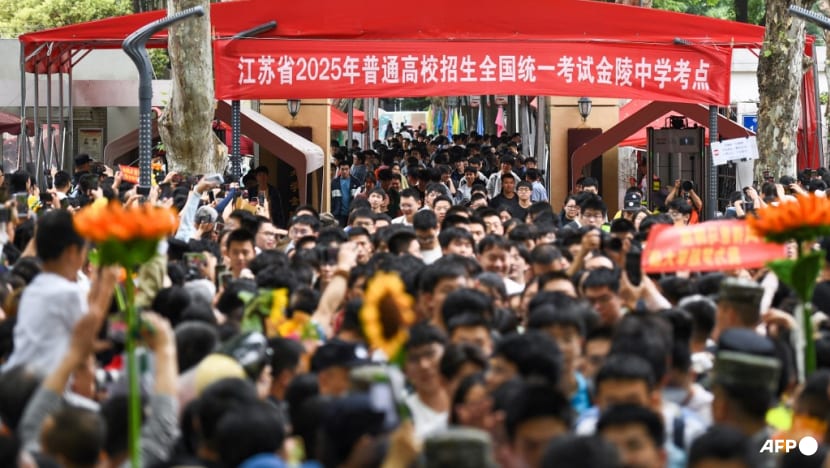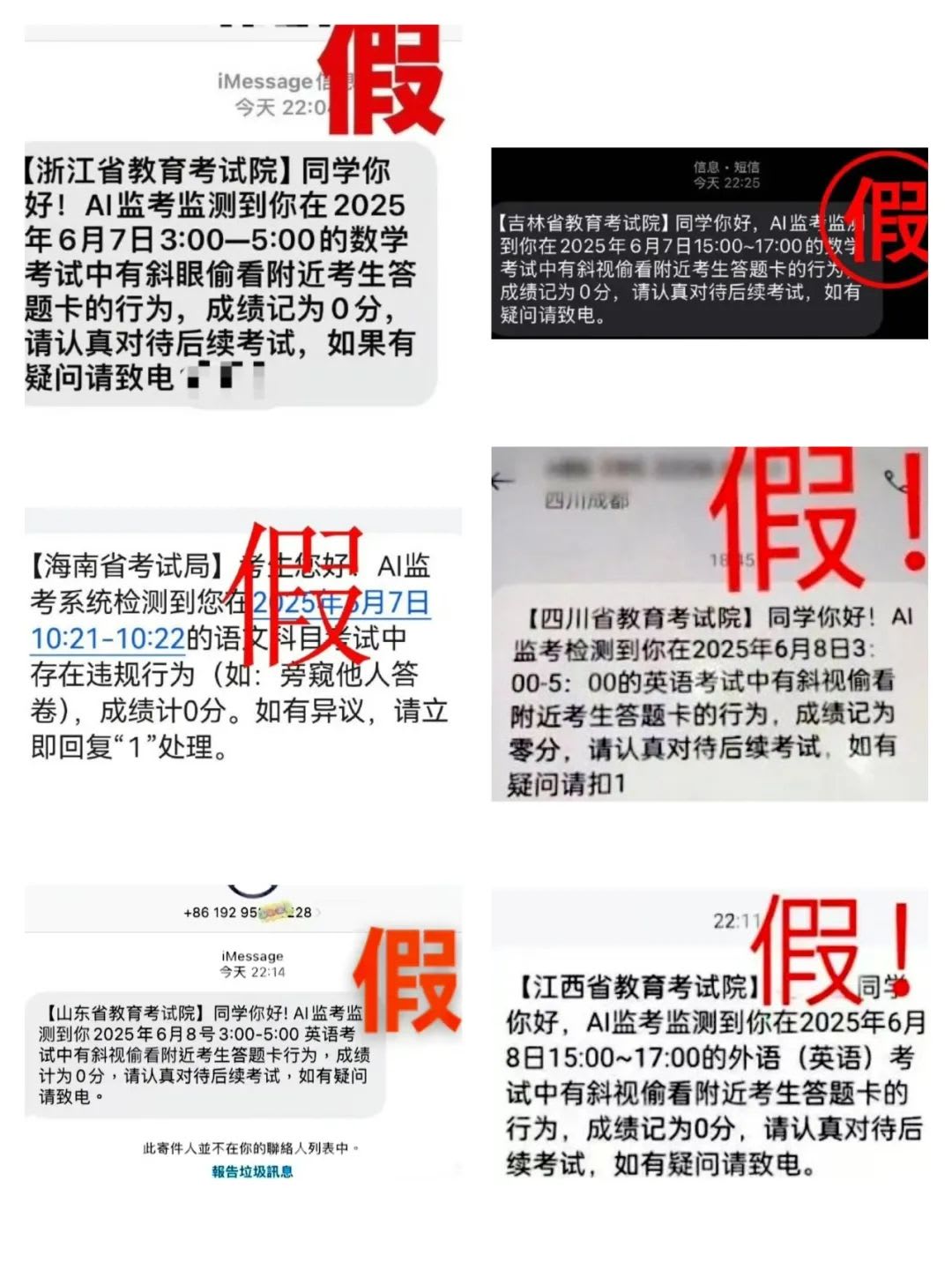From test to trap: China warns of scams targeting students, parents as high-stakes college entrance exam ends
One scam involves students being told they scored zero on the exam due to cheating, and to pay a fee to “delete” the incriminating video.


This audio is generated by an AI tool.
BEIJING: From fake messages, phishing links to fraudulent offers - authorities in China are sounding the alarm over scams preying on students and parents as they anxiously await the results of the fiercely contested national college entrance examination.
The exam, known as gaokao in Chinese, concluded on Tuesday (Jun 10) after four days. More than 13.3 million students took it this year, and results are set to be released around the end of the month.
The gaokao is widely regarded as a gatekeeper of opportunity - doing well paves the way to academic and career success, while poor results significantly narrow one’s prospects. As anticipation grows, authorities warn that scammers are trying to exploit the situation.
According to education officials and the police, many students across the country have received text messages claiming artificial intelligence (AI) monitoring systems caught them cheating, resulting in them scoring zero on the gaokao.
Nearly identical, the messages all claim to be from the education bureaus or exam venues where the students sat for the papers.

Students are requested to call the number provided in the message for clarification. In some cases, the scammer demands a fee or deposit to help "delete" footage of the alleged cheating.
Authorities across different provinces, such as Sichuan, Jilin, Zhejiang, Tianjin and Hainan have released notices on messaging platform WeChat warning students and their parents of the scams, Chinese state broadcaster CCTV reported.
In a notice posted on Monday night, the Criminal Investigation Bureau under the Ministry of Public Security said cheating violations will be reviewed manually, and individuals will be notified in writing. Official notifications will also not be made through phone calls, text messages or any similar methods.
“Any requests involving further money transfers are scams,” said the bureau.
Chinese media reports have also highlighted other gaokao-related scams.
One involves text messages suggesting that the gaokao results have been released in advance and opening a link to find out more. In this case, the provided link is likely a phishing website, designed to obtain the victim’s personal information.
Another con involves a scammer pretending to be a college teacher or an education ministry employee, falsely claiming they can help high-performing students apply in advance for grants and scholarships in return for a “handling fee”.
The reports by local media did not state how many such scam cases have recently emerged.
In its Monday notice, the Criminal Investigation Bureau stated that the checking of examination scores, school admissions, and other processes is done through official channels.
“Do not trust unverified text messages or calls,” said the bureau, adding that students and parents who encounter suspicious activity are advised to contact their schools, the authorities or call the national anti-fraud hotline for assistance.














